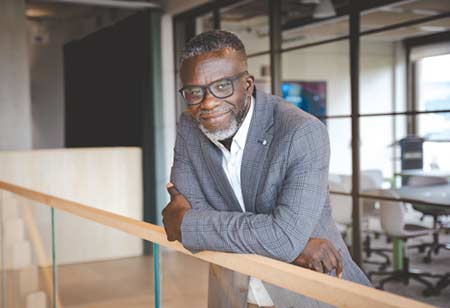THANK YOU FOR SUBSCRIBING

Digital Transformation: A Centenary Process
Tasso Lugon, CIO - Chief Technology Officer, Banestes

 Tasso Lugon, CIO - Chief Technology Officer, Banestes
Tasso Lugon, CIO - Chief Technology Officer, BanestesIt isn’t news that we currently face frenetic transformations in both social and professional fields. The dynamics change every few years: what is cutting-edge today, might just be obsolete by tomorrow. In a symbiotic way, technology goes hand in hand with social aspects, always seeking to meet the needs of an increasingly demanding market.
Although the expression sounds recent, anyone who relates the term technology only to current times has been misled. Digital Transformation is a centenary process that involves several areas of humanity, stemming to the beginning of the Industrial Revolution in the 18th century.
During this time, implementing machines to automate production processes was the main factor of economic transformation, and brought along social and cultural changes, strengthening urbanization and creating new social classes.
Technology continued to evolve. The invention of the computer, in the 1940s, and the development of the commercial internet in the 1990s, opened the doors to the future and to digital transformation as we know it today. Being able to go online from anywhere in the world has revolutionized the way people work, communicate and connect with each other. It must be noted that digital transformation is a consequence of the changes taking place in society, not a cause. The need for global presence is the motor that generates new technologies and innovation in the digital segment.
Social networks and cloud computing in the 2000s produced even more of an impact on the digital landscape, allowing the development of new business models. In the past decade, the change of scenery has gained momentum through smartphones and, more recently, the further development of artificial intelligence, machine learning and the Internet of Things (IoT).
In Brazil, digital transformation has been one of the guiding principles of public policies in recent years. The country has been digitalizing hundreds of public services from different branches of the Government, and national efforts in banking digitalization have placed Brazil as a latin american leader and worldwide reference in the subject.
" Digital transformation is the last step in a long process of change that goes through several stages and creates structure for businesses and society. "
The boom of digital banks in the last decade (already part of the lives of over half of the Brazilian population), the creation of Pix in 2020 (an instant payment system, available 24/7, created by the Central Bank of Brazil) and the strong adoption of services such as Open Finance are excellent examples of successful digital transformation in Brazil. The provision of digital public services in the country is outstanding. For instance, the federal platform gov.br has achieved 140 million users, 80% of the adult population. With a single login, citizens have access to hundreds of digital services offered by the Brazilian government.
In the State of Espírito Santo, things are no different. Considered the most transparent state in Brazil, according to the Transparency and Public Governance Index (ITGP), Espírito Santo is also invested in the digitization of public services. With the implementation of the e-Docs system and the Citizen Access (Acesso Cidadão, a service similar to gov.br), the population of Espírito Santo can benefit from hundreds of State tools directly from their cell phone screen.
Another highlight of Espírito Santo is the state-owned bank, Banestes. Founded in 1937, the institution has worked to strengthen and encourage the local economy ever since. Banestes offers to the public several pioneering and innovative projects, such as:
● BanesHub, Banestes' innovation hub. The project aims to promote business expansion, partnerships with startups and fintechs, increase of digitalization processes, among others efforts. It fosters innovation for the entire bank structure, promoting the development and evolution of new services. BanesHub also provides data analysis insights, ensuring an even better experience for Banestes customers;
● BaSE - Banestes Share Experience, a professional gathering promoted to exchange experiences between business managers in Espírito Santo, working to share challenges and craft solutions for a more innovative and digital society;
● Programa Desburocratiza, or Program Debureaucratize, a project that aims to improve processes by valuing the knowledge and experience of employees and incentivizing them to increase simplicity and accessibility. In 2022, there were 95 proposals for improvement, which were sent and analyzed by the organizing committee. Out of those, 10 ideas were approved and selected to move on to the co-creation and implementation stage.
Digital transformation is the last step in a long process of change that goes through several stages and creates structure for businesses and society. More competitiveness, better customer experience, innovation, market value, health, education and modes of consumption: all of these elements go hand in hand with the digitalization of the world, adapting to market instabilities, making the company more innovative, resilient, agile and flexible to face the difficulties of the world.
Read Also

















ON THE DECK